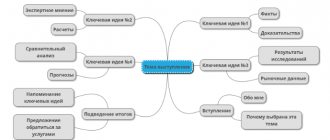The main goal of any speech, and, consequently, of any speaker, is to have one or another impact on a certain circle of listeners, to convey to them a specific thought and, as a rule, to receive the necessary return. Moreover, rhetoric is so flexible that it acts differently in the hands of each individual speaker. This article examines several classifications that reveal the types of speakers.
The art of eloquence, or rhetoric, has been revered since ancient times, and today no one will deny the power of the word. Rhetoric, like any other form of art, is not homogeneous and has different effects depending on what type of speakers addresses it.
Classification according to Cicero
Cicero was one of the first to propose his division of speakers into three types, according to what they use to persuade the public - clearly structured reasoning or emotional influence.
First type
The first type of speaker, according to Cicero, is distinguished by modesty and restraint. Their speech seems harmonious and logical and, being essentially a monologue of one rhetorician, nevertheless resembles a dialogue between two intellectuals: the speaker and his audience. This effect of live communication is achieved through the active use of rhetorical questions and the question-and-answer form of communication.
The power of persuasion of such an author lies in his ability to reason and draw certain conclusions. By conveying complex things to the audience in simple language and revealing the obvious, the speaker wins over the audience. As a rule, they are captivated by the rationality of the author’s judgments, his cold calculation in relation to what he is talking about.
This case also has its drawbacks: it is quite difficult for the first type of rhetorician to make a dry speech, devoid of any emotions, lively. A person is designed in such a way that after the first 20 minutes of perceiving information, attention becomes more scattered and boredom appears. This is why the monotonous speech of restrained speakers makes many listeners drowsy.
Second type
The second type is a kind of opposite of the first and is based on the emotional presentation of information. An author of this type is in his own way quick-tempered, impulsive and “burning” with the idea that he is trying to convey to his audience. Such people attract attention and keep you in suspense from the beginning of the speech to the very end.
The speaker is captured by his own feelings and not so much by desire as by the thirst to open the public’s eyes to what the speaker himself clearly sees. Because of his ardor, he loses sight of one important detail, namely, the structure of speech. As a rule, the speech of such speakers, with all its pomp and solemnity, is quite confusing and inconsistent, which causes understandable difficulties in perception.
In addition, a rhetorician who throws the listener off the bat with his stormy utterances risks looking not just strange, but even frightening and insane.
Third type
The third type of speaker according to Cicero is moderate and is located between two extremes: the overly restrained first type and the overly impulsive second. In a speech that is accessible and attractive to the public, everything should be in moderation, starting with a logically constructed structure and ending with the emotional message of the speaker.
By intelligently combining the qualities of the first two types, you can get an ideal speaker who controls his speech and knows how to influence not only the mind, but also the feelings of the listener.
Educational materials
The word “orator” appeared in the Russian language at the beginning of the 18th century, and became more widespread in the first third of the 19th century.
It comes from the Latin word orare, which means “to speak.” Words and phrases close to his meaning vitiia, eloquent person, eloquent person, master of speech emphasize that an orator is a person who knows how to speak eloquently, i.e. beautiful, figurative, expressive.
Today, by the word “orator” we understand, firstly, a person professionally engaged in the art of eloquence; secondly, the person giving the speech, the speaker, the one speaking to the audience, as well as the person who has the gift of making speeches. The term “speaker” itself does not have a qualitative characteristic, therefore it needs additional definitions: a good speaker, a bad speaker, an outstanding speaker, a brilliant speaker.
Each speaker has his own individual characteristics, which affect the style of speech and are manifested in the manner of speaking. Therefore, theorists of oratory have long distinguished different types of speakers. Thus, Cicero named three types. He classified the first type as “eloquent, with sublime power of thought and solemn expression.” In his opinion, these are speakers “decisive, varied, inexhaustible, powerful, fully armed, ready to touch and convert hearts.” The second type includes speakers “restrained and insightful, teaching everything, explaining everything, and not exalting, honed in their transparent and concise speech.” The third type of orator was described by Cicero as “the middle and moderate kind, using neither the subtle forethought of the latter nor the violent onslaught of the former.”
Modern speakers have certain requirements. A person speaking from the podium must be a highly moral person, because his word can influence the destinies of people, help them make this or that decision in life. The speaker's speeches should be aimed at achieving moral goals and evoke good feelings and intentions in the audience.
The speaker must be an erudite person, i.e. well-read, knowledgeable in the field of science and technology, literature and art, understand politics and economics, be able to analyze events taking place in the country and abroad. He must know the subject of his speech well, only then can he count on the attention and respect of his listeners.
To speak publicly, a speaker must have a number of special skills (the skill of selecting literature, the skill of studying selected literature, the skill of drawing up a plan, the skill of writing the text of a speech, the skill of self-control in front of an audience, the skill of time orientation) and abilities (to independently prepare a speech, to present clearly and convincingly material, answer questions from listeners, establish and maintain contact with the audience).
The word "audience" is directly related to the Latin words audire "to hear" and auditor "listener." An audience is defined as a spatially located group of people united by an interest in the subject of the statement and interacting with the speaker and each other in the process of perceiving the speech message. This is a complex socio-psychological community of people with unique characteristics of collective experiences.
Good knowledge of the audience in which to speak, the ability to take into account its state and mood allow the speaker to better prepare for the speech, establish contact with the audience, and achieve success in communication.
The main characteristics of the audience include, first of all, the degree of its homogeneity/heterogeneity, which is determined by the socio-demographic characteristics of the listeners. These include: nationality, gender, age, education, professional interests, life experience, etc. The more homogeneous the audience, the more unanimous the listeners’ reaction to the speech, the easier it is for the speaker to speak.
An essential feature of an audience is the quantitative composition of listeners. The behavior of listeners and their reactions in a large and small audience are different: a large audience is not intended for a discussion of issues; it is difficult to use arguments that are relevant and understandable to everyone present. In a small audience, what is expected from the speaker is not a long monologue, but a lively, direct dialogue, the ability to involve everyone present in the conversation.
The audience is also characterized by a sense of community, which manifests itself in a certain emotional mood of the listeners. Some of them unconsciously repeat the actions of those around them (contagion), others consciously reproduce the behavior patterns of those sitting next to them (imitation), and still others are influenced by the opinions and behavior of the majority of those present (conformism). As a result of the action of these mechanisms, a general mood is created in the audience, which significantly affects the establishment of contact between the speaker and the audience.
An important characteristic of the audience is the motive of the listeners’ action. Psychologists distinguish three groups of motives: intellectual-cognitive motives (the listener is interested, he wants to expand his knowledge), moral motives (the listener must be present), emotional-aesthetic motives (the speaker gives pleasure).
So, when speaking about the speaker and his audience, we mean participants in verbal communication, the success of whose cooperation depends on both the speaker and the listener. But the focus is on the speaker, who must live up to the rhetorical ideal. The rhetorical ideal is understood as the harmony of the relationship between the speaker and the audience. This ideal was embodied by Demosthenes and Socrates, Plato and Cicero, Lomonosov and Klyuchevsky, Koni and Plevako, Sakharov and Likhachev, etc.
The most important condition for the effectiveness of public speaking is contact with the audience, which arises on the basis of the joint mental activity of the speaker and the listener. A number of factors contribute to establishing contact: the relevance of the issue being discussed, the personality of the speaker, and the characteristics of the audience.
There are some rules for making a speech:
– speak loudly enough so that everyone present can hear the speaker clearly;
– avoid monotony by alternately raising or lowering your voice;
- do not speak too quickly (patter) or, conversely, too slowly - you should slow down or speed up the pace of speech depending on its content, generally adhering to an average pace;
– do not breathe too loudly;
– make logical, justified pauses from time to time, especially after important information, giving listeners the opportunity to better understand it and emphasizing its significance;
– do not constantly wipe your face with a handkerchief;
– do not abuse gestures, using them mainly only in emotional places of speech;
– do not demonstrate too much facial expression, and also do not allow it to be completely absent;
– do not spread your legs wide, do not constantly step from one foot to the other, do not stand on one leg;
– do not constantly look at one point or at the ceiling, but evenly survey all your listeners;
– do not walk around in front of the audience.
Along with observing these rules, it is necessary to try to avoid typical shortcomings of oratorical speech. These include:
Poverty of vocabulary. The speaker constantly repeats many words in his speech. This indicates poor education and a low intellectual level of the speaker. Verbal monotony and banality of style suggest that the content of the speech is also banal.
Style mismatch. It should be remembered that objects of different spiritual and moral value must be spoken of using different styles, i.e. You cannot talk about insignificant matters in a high style, about important ones in a low style, or about sad ones in a cheerful style.
Lengths. Too long intricate reasoning, evidence, descriptions must be shortened, and complex sentences consisting of 4-5 or more simple sentences must be divided into 2-3 sentences.
Excessive brevity. The speaker, omitting some information, unreasonably leaving something out, makes his speech not entirely clear to the audience. When presenting key thoughts and reasoning, the speaker must provide explanations and emphasize the essence of his statements.
Little-known foreign words, narrow professional terms, and outdated words can cause unclear speech. If they cannot be avoided, their meanings should be briefly explained.
A moment of cacophony. It is necessary to avoid numerous sound fillers of pauses - filler words, repetitions of words that do not carry information.
Main types of arguments > Russian language and speech culture >
Classification according to S.F. Ivanova
According to the thoughts of the teacher, lecturer and author of numerous works on rhetoric S.F. Ivanova, a person manifests himself in oratory depending on what type of personality he belongs to. So, S.F. Ivanova considers the following types of speakers in her classification.
Emotionally-intuitive
This personality type correlates with the second type according to Cicero. Just like Cicero, the emotional-intuitive speaker captures the attention of the public with the help of passionate and expressive speech, rich in ironic remarks, topical jokes, vivid comparisons and lyrical digressions.
Speakers of this type often appear a little eccentric due to their behavior behind the podium. The danger for such authors is that their rambling speech appears to many listeners as idle chatter and, therefore, does not receive the necessary serious attention from the audience and its response, which, in fact, is the purpose of any utterance. In order to remain not only an original author, but also in demand, speakers of this type carry out special work on their speech.
Such authors usually prepare for presentations in two stages. To begin with, they write down their speech as it comes from the heart with all emotional expressions and digressions. At the second stage, the received text is processed. The author analyzes his work and cuts off the unnecessary. During the speech itself, they are advised to have a clear plan with them, reflecting the structure of the speech, and protecting them from unnecessary statements and prolongation of the speech.
Rational logical
Speakers belonging to the rational-logical type behave more restrained. As a rule, such people are more silent and do not make empty speeches. Each statement is the fruit of long and deep reflection. Such people tend to constantly monitor and analyze everything that is happening around them, as well as what is happening inside the speaker himself and his listeners. This habit of reflection gives rise to precisely calibrated statements, devoid of the color and special “juiciness” that good speech should have.
As the first type of speaker in Cicero’s classification shows, speech deprived of a certain amount of expression becomes almost lifeless, despite all its logical beauty. Analysis of the situation and the speech that is being prepared regarding this situation is very important, as is the structure of the speech. However, this is not enough to “reach out” to the audience and get their response.
That is why, when preparing for performances, this type devotes a lot of time to the written editing of his speech in the direction of enriching it with various artistic means such as metaphors, comparisons, epithets, as well as numerous aphorisms and proverbs.
Philosophical
This type of speaker is more difficult to characterize, since they do not belong to one extreme or another, but from time to time they can be either too consistent or, on the contrary, confusing. As a rule, people of this type are somewhat withdrawn and fixated on the topic that interests them. They enjoy studying an object from all sides, spending a lot of time working with archives and communicating with people involved or close to the subject of study.
Such an author usually speaks in public infrequently, but as a speaker he is characterized by his thoughtfulness and comprehensive analysis of the problem being studied. Rhetors representing the philosophical type are good at written reasoning, therefore letters to like-minded people or scientific articles published from the pens of these authors are distinguished by logical reasoning and a deep understanding of everything related to the object of study.
The public loves and listens attentively to such rhetoricians, thanks to their ability to present information in a moderate style, maintaining the originality of their judgments with sufficient imagery of speech.
Lyrical or artistic
Speakers of this type are rarely found in their pure form and are usually philosophers who are carried away by lyrical reasoning. The lyric rhetorician is a creative person who, like philosophers, is characterized by deep thinking and a tendency to constant reflection.
The main feature of the speech of such a speaker is its imagery. He thinks not in logical structures, but in figurative manifestations of the surrounding reality. Thanks to this perception of the world, lyrical speakers pronounce speeches rich in metaphors, comparisons, metonymies, quotes, proverbs, sayings and other means of expressive language.
List of used literature
References
1. Anisimova T.V., Gimpelson E.G. Modern business rhetoric: Textbook. - Volgograd: VolSU Publishing House, 2001. - 432 p.
2. Kokhtev N.N. Rhetoric: Textbook/ -M.: Education, 1994. -207c.
3. Mikhalskaya A.K. Russian language: Rhetoric. 10-11 grades – M.: Bustard, 2011. – 491 p.
4. Steward K., Wilkinson M.. Oratory (pretend to be an expert on it). – SPb:. Amphora/Eureka, 2001. https://koob.ru
5. Surin N. Rhetoric: Textbook. – M.: MGIU, 2007. – 246 p.
Similar works
topic “Definition of the target audience, features of determining the target audience on the Internet. A technique for determining the target audience and searching for it on the Internet. Types of target audience on the Internet. The relationship between the target audience and the type of advertising campaign and advertising tools used"
Interpersonal compatibility, classification of types of interpersonal compatibility
Black rhetoric: main manifestations and causes. Manipulation of the speaker, main signs. Methods of protecting the speaker from manipulation, black rhetoric, etc.
The theme of the “little man” in Russian literature
Assessments and analysis of financial stability indicators. Classification of types of financial stability
1. Monetary aggregates in Russia and the USA. 2.Commercial banks: concept, functions, classification of types. 3. The system of financial management bodies in the Russian Federation. 4. Re
Classification of types of marriage
“The theme of the “little man” in Russian literature of the 19th century”
The image of the “little man” in Russian literature
Classification according to S.A. Mineeva
The first two approaches to the classification of types of speakers were based on the psychological characteristics of the author’s personality, while the third classification, proposed by the author of many books on the art of rhetoric, S.A. Mineeva, refers to what the speaker puts at the forefront of his speech: his speech, the audience or himself.
Constructive
A constructive speaker sets priorities so that the speech comes first, which is why such an author devotes a lot of time to formulating the thesis of his speech and how to most effectively convey it to the audience.
For authors of this type, it is important not just to give a speech, but to fully disclose the problem to the public and consider all possible ways to solve it. They need a concrete result to remain after their speech, which will be the impetus for resolving the situation under discussion.
As a rule, rhetoricians of the constructive type carry out painstaking work on their speech, carefully thinking through the structure of the speech and selectively filling it with linguistic means to establish the necessary connection between the speaker and his audience. Special attention is paid to preparing a convincing argument in favor of the proposed solutions.
Rhetoric in the hands of such authors becomes a real weapon for achieving persuasion of the audience by any means available to rhetoric.
Thus, Aristotle wrote that rhetoric is “the ability to find possible ways of persuasion regarding any given subject.”
This is precisely the approach to rhetoric that constructive speakers take.
Populist
Populism is a striking example of almost all speeches made by politicians during the election campaign. Based on this thought alone, one can guess that a populist speaker is focused, first of all, on attracting a mass audience.
As a rule, the speeches of such speakers are a mirror reflection of what the public wants to hear. Hence the numerous election promises that the speaker forgets about after achieving his goal. By the way, the goal of a populist is to attract public attention to a certain person. This personality is usually expressed in the image of a hero (which is most often the speaker himself or the one for whom the speaker is campaigning) or in the image of an enemy against whom it is necessary to unite under the leadership of the hero image.
The means used by a populist usually consist of abundant criticism of opponents, promises to lead the audience to a better life, and vivid descriptions of solutions to all problems existing in society. With his speeches, a populist speaker creates an imitation of vigorous activity to restore subjective justice.
Populist methods of attracting audiences are distinguished by their destructiveness and, in contrast to the creative call of constructive speakers for practical solutions to problems, they create only the illusion of resolving pressing issues, and their inherent criticism even generates a negative attitude in society towards opponents, up to conflicts and clashes.
Demagogue
For this type of speaker, rhetoric is a way of self-expression and drawing attention to oneself, thus putting the speaker himself in priority.
The speech of a representative of this type of speaker is characterized by inaccuracy and generalization of formulations, lack of references to specific events and personalities.
As the Roman rhetorician Quintilian said, rhetoric is “the science of speaking well,” and a rhetorician is “a worthy man, ready to speak.”
This is what distinguishes a real demagogue - he is ready to speak in any situation, with or without reason.
The demagogue's speech lacks idea and purpose. As a rule, such a speech turns into a thoughtless stream of general phrases, devoid of any specifics.
Qualities of a good speaker
Regardless of what type a speaker represents, he must have certain qualities in order to be a worthy object of public attention. These qualities include the following:
- erudition and impeccable command of language are an essential quality of a good speaker;
- the speaker must also be attentive and observant, since it is important for him to record and analyze the changes taking place in the world and in society. Besides,
- it is important to notice changes in mood in the audience in order to be able to influence it;
- ingenuity and the ability to think logically will help the speaker to endow his speeches with rational judgments and a clear structure;
- a broad outlook and developed intelligence are necessary for the author to formulate his own opinion based on the studied facts and data obtained;
- moderate expressiveness is necessary for the speaker to demonstrate personal interest in the topic under discussion and for emotional rapprochement with the audience;
- a speaker needs to develop personal qualities in order to look like a worthy person in the eyes of the public.
The talent of eloquence is not given to everyone from birth, but, nevertheless, every person at least once in his life acts as a speaker, thereby demonstrating the qualities of certain types of speakers, which proves the importance of rhetoric in the life of the entire society.










